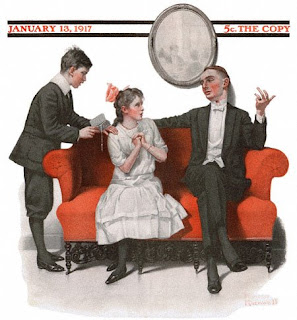Morality in video games is either the setup or the punchline, but either way it makes me laugh. When I started playing, it was simple: bad guy kidnapped girl (Princess Peach, girlfriend in Double Dragon), you beat the hell out of every son of a bitch stupid enough to get in your way. Nowadays, the kids have options, such as playing a game in which you're the bad guy and the world is too happy and peaceful and you need to kill everyone who's stupid enough to oppose your menace. Moreover, some games don't care either way and let you just run around and kill people and collect coconuts.
No More Heroes is a fine game. Some games, though, have made the judicious decision to let the player decide whether or not to kill the hooker! And everyone always kills the hooker.
And in
GTA, this is nary a problem. You don't play a game named after a felony to explore the nuances of ethics and morality, so of course the benefit (return on your cash) will outweigh the consequences and risks (none). There are other games, though, where the judgments offer rewards and drawbacks either way, but this determines less who you are than what you are. Which is to say, are you a good or bad person? It doesn't really matter, but if you pick the evil path, you get to wear black!
 Yeah, you're a real badass.
Yeah, you're a real badass.
The options offered in these games are so clear, it's painful. It's almost like those Choose Your Own Adventure books, but the bottom of the page would look like:
If you want to get raped to death by crustaceans, turn to page 38.
If you want to get sexed to death by Brazillian women, turn to page 39.
If you're looking for a threeway, read both and work it out in your head, you sick bastard.
Seriously, it's generally that obvious. The thing is, most of the time, it's all equal. You'll probably get the same ending, more or less the same abilities. Characters might treat you differently, but it doesn't matter, as you can't really treat them differently back. This seems pretty counter-productive for role-playing games, I'd say. After all, some things offend some people and not others. If my character smoked weed but didn't molest children, I'd expect him to be treated differently than if he smoked weed and did molest children, but also depending on who he's around; my dealer should be more okay with this than the kid's parents. This sort of so-sane-it's-radical thought defeats the simple morality slider so prevalent in games today.
Having given this a lot of thought, I've realized the best thing to do is go back to the books. Books. You remember, those things with paper and all those words. Dungeons and Dragons has books, and pretty much invented modern role-playing.
 Not exactly what I... that's perfect.
Not exactly what I... that's perfect.
D&D version 3.5 has a fairly complex system of judging where you are on this four-point graph of Lawful/Chaotic and Good/Evil. It's kind of like the Ninja/Pirate Vampire/Zombie graph you know, but will offer you more perspective on whether or not your character would break a toddler's skull. The cool thing about this system is it actually works for role-playing because, like in video games, you can do the same damn thing (kill everything) for different reasons (save or conquer the world) and it makes a difference (be self-righteous or awesome). There is also neutral, which can be applied to both the ethics and morals, but those are the same people who let the party know orcs are coming to fist them with the "Beige Alert."
To give you a quick rundown of how this works, well, I'll let Batman explain:
 Batman: your portal to understanding.
Batman: your portal to understanding.
So, keeping these things in mind, I thought we'd take a look at some of the most common moral "dilemmas" gaming has to offer, and what this more robust perspective affords us.
#1 Do I finish the Job?
This has nothing to do with you being a mercenary and honoring a contract with a dead man, because those stories have that as the entire plot. No, I'm thinking the first even of
Knights of the Old Republic, a game in which the only real question is whether or not you want to pay more skill points for Force Lightning and nothing to do with whether or not the Jedi Council, in their infinite wisdom, will condone you. Brilliant.
So the sit-rep is: a guy is getting racketeered on the street, because that's where you racketeer, right?
Game offers: Be boring (do nothing), be heroic (save dude, return cash), be a dick (save dude, take money).
This is crap. I'm not doing all nine, but let's broaden our minds anyway, shall we, Bioware?
Lawful Good: Arrest evildoer, return money.
Chaotic Good: Kill the mugger, scold man for getting involved with mob. Possibly take money because he's too dumb with it. Maybe donate.
Lawful Evil: Really, one is a criminal and the other an accomplice. Kill both, take money.
Chaotic Evil: Kill mafioso. Rape his victim. Kill victim. Rape again. Rape money.
So while the final product is more or less the same, you get a different person with the course of action. Let's continue.
#2 Do I Kill a Little Girl for Profit?The much-lauded
Bioshock had this neat thing where you could take this whacked-out little girls and either release them from their suffering and restore them to normal--thus letting them venture back into a mutant-infested, underwater hell all alone-- and be rewarded later or harvest them for, essentially, money. Whether or not this made you the "good guy" somewhat depended upon who you asked, as one character thought the girls were demons and the other her children, but it's pretty clear where this was going. One was good, the other evil. I say, if you think there are two sides to any story, you're not looking hard enough.
Neutral Good: Free the girl, demand payment to save yourself and anyone else you can, none of this "little bits as you do more" bullshit.
Lawful Neutral: There's no law in Rapture, and papa needs a new gene-splicer...
Chaotic Evil: Rape little girl, take currency, find her benefactor, repeat.
See, the first and third offer similar ending points, but should change the tone, and rating, of the game.
#3 Kill the Hooker?Back to
GTA3, should you kill the hooker?
Lawful Anything: Hooker=Yes.
Chaotic Anything: "Money Back Guarantee" is not a safe phrase to throw around.
Neutral: If I run her over on my way out of the alley, I won't avoid the money.
#4 Shocking, Isn't It?
The latest game to jump on the goodness slide is
Infamous, a game in which you are an electricity-based superhero who isn't black.

Did you know the NAACP has been around for a century?
And in Infamous, you can revive or execute people with jolts of pow-ah, and this little mechanic applies to both your enemies and innocents caught in the crossfire, which is pretty neat. Never mind the physics of it,though, as we're exercising in philosophy. You want science, you should be reading XKCD.
Neutral Good: You know, I'm busy chasing the bad guy. I might get back and get your heart beating again. We'll see.
Lawful Evil: Killing an evil gang member, right now and you know what? I'm not a doctor, and if I mess this up you might just sue me and really, this will be a mercy killing BAZZZZAPP!
Chaotic Evil: What bad guy? Oh, that bad guy. Thank you for the heads-up citiz-BAZZZZAPP!
See how much more fun a world with more than two choices is? Now if only we had a political system closer to this. For instance, I'd like a party to fall in the "good" category.
-Black Ranger























